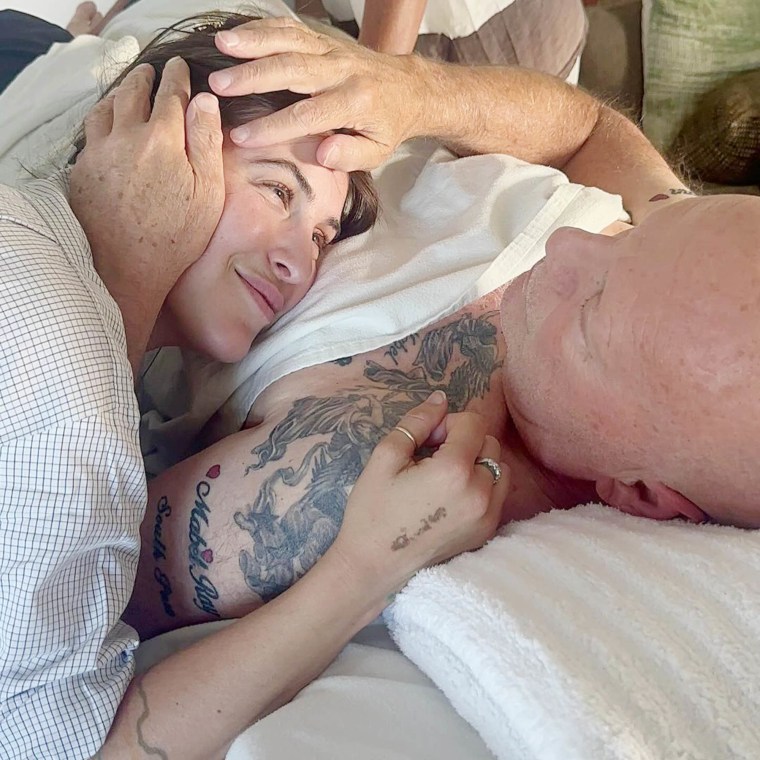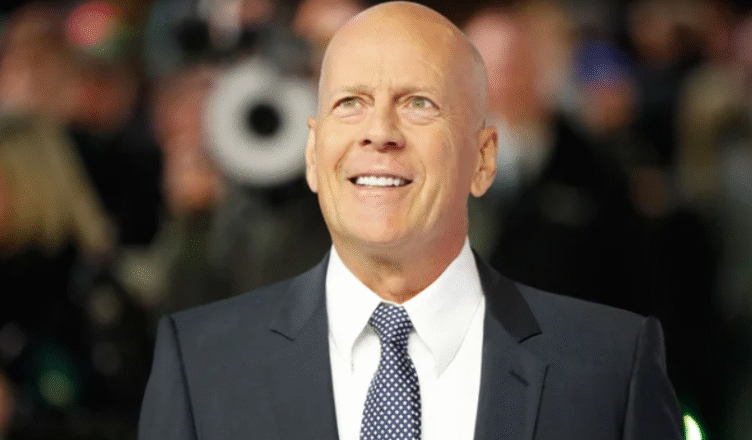Since 2022, Bruce Willis has been struggling with a very difficult health journey, marked by a difficult diagnosis and the gradual progression of a neurodegenerative disease.
In March 2022, the Willis family publicly announced that the beloved actor was stepping away from his iconic acting career due to health issues.
At the time, they shared that Willis had been diagnosed with **aphasia**, a language disorder that impairs a person’s ability to speak, write, and understand speech. The announcement sent shockwaves through the entertainment world, as Willis had been a fixture in Hollywood for decades, best known for his roles in films like *Die Hard* and *The Fifth Element*.

Progression Towards Frontotemporal Dementia (FTD)
In early 2023, the Willis family revealed more about Bruce’s ongoing health struggles. They shared that his condition had deteriorated and that he had been given a definitive diagnosis of **Frontal Temporal Dementia** (FTD), a rare and progressive neurological disorder. FTD primarily affects the areas of the brain responsible for behavior, emotion, and language — often impairing communication skills, while memory can remain relatively intact for longer periods of time compared to other forms of dementia, such as Alzheimer’s. It is the most common form of dementia in people under the age of 60, and is a disease for which there is no cure and that progresses slowly but steadily over time.
In an emotional interview with *Town & Country* in October 2024, Bruce’s wife, **Emma Heming Willis**, opened up about the early symptoms of the disease and the challenges of her husband’s health declining. She revealed that she first noticed changes in Bruce’s language, but initially attributed the changes to his childhood stutter. She explained:
*”When his language started changing, (it seemed like) it was just part of the stutter, it was just Bruce. I would never have thought it was a form of dementia in someone so young.”*

The Subtle Nature of FTD
Emma described the difficulty of recognising the true cause of his symptoms. The slow progression of FTD often makes it difficult to pinpoint exactly when the disease begins to affect a person. She mentioned that FTD *whispers*, making it difficult for loved ones to pinpoint when the disease begins to attack.
*”I say whispering, not screaming. It’s hard for me to say, ‘This is where Bruce ended, and this is where his illness began,'” she said.

For Bruce and his family, the road to understanding his condition was filled with uncertainty. The diagnosis of frontotemporal dementia was a relief in some ways, because it explained the cause of his symptoms. But the diagnosis also brought the painful reality of what lay ahead, because FTD is a progressive disease for which there is currently no cure.
Influence on the life and career of Bruce Willis
Bruce Willis, who became a global superstar with action films like *Lie Hard*, *Pulp Fiction* and *The Sixth Sense*, now lives with the long-term effects of FTD. His wife Emma, along with ex-wife **Demi Moore** and their children, have remained steadfast by his side, providing him with support and love throughout this difficult journey.
Despite his health challenges, Willis remains a source of inspiration to fans and fellow actors alike, with many praising his resilience and the strength of his family. As his illness progressed, Willis’ family pledged to raise awareness of FTD, a condition that is often underestimated and misunderstood.
Looking to the future
The Willis family has made it clear that Bruce’s health and well-being are their top priority and they are focused on keeping him as comfortable as possible. They have also expressed their gratitude for the public’s support and understanding during such a personal and difficult time.
While Bruce Willis continues to live with FTD, his legacy as an actor and his contributions to the world of entertainment remain significant. His family remains hopeful, sharing his story in hopes of raising awareness for both aphasia and frontotemporal dementia, conditions that affect thousands of people worldwide.
Bruce’s journey is a reminder of the importance of empathy and understanding when it comes to neurodegenerative diseases. It is a testament to the love and dedication of his family, who work together to ensure that Bruce’s legacy, both as an actor and a person, continues to inspire.
